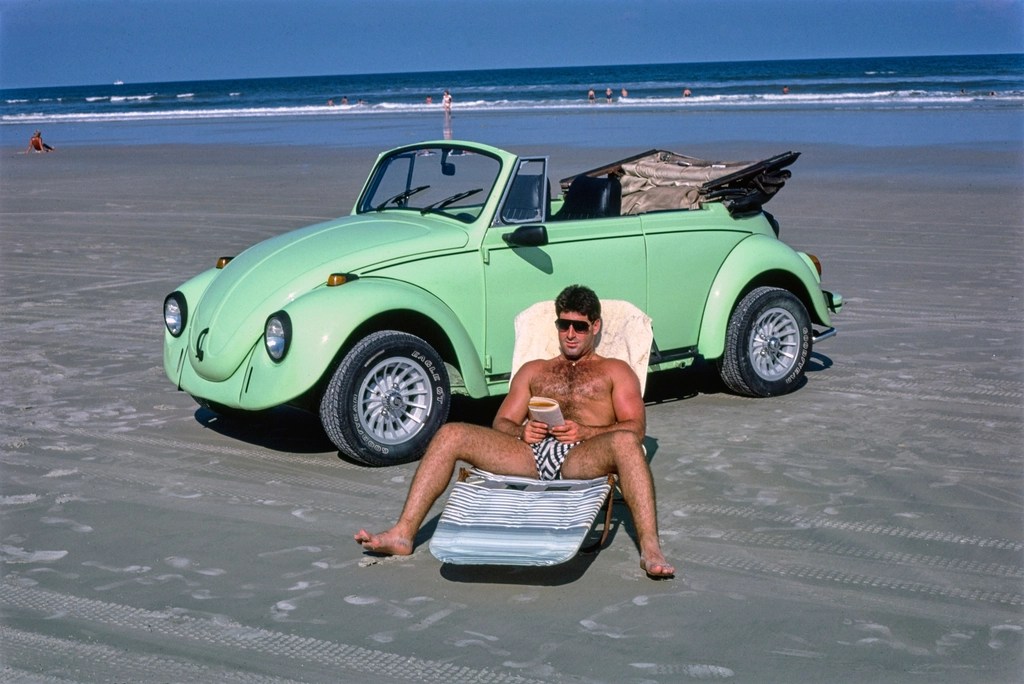[ad_1]

Florida legislature is about to ban offshore wind turbines in state waters, which wouldn’t be put there to begin with, to protect the beaches.
Excluding hurricanes, of course, Florida doesn’t have sufficient wind power, either onshore or offshore, that, say, states in the US Northeast or Texas have to sustain a wind power industry. That’s why Florida has no wind farms – either onshore or offshore. The Sunshine State is a US solar power leader.
However, the Florida state legislature wants to ensure that its nonexistent offshore wind power industry stays nonexistent. It’s about to pass HB 1645, which will ban wind turbines in state waters.
First, something that made me giggle – the bill defines a wind turbine as a tower, rotor, and blades “capable of producing more than 10 kilowatts of electrical power.” (So, if you were planning on powering up your 10 microwaves with a wind turbine, Floridians, you can forget it.)
The bill then prohibits wind turbines within 1 mile of the Florida coastline or Intracoastal waterways. It will also ban them within all state waters, extending three nautical miles from shore on the Atlantic Ocean and nine nautical miles on the Gulf of Mexico side. This might make a smidge of sense if someone wanted to develop wind farms there. But they don’t. Because there isn’t sufficient wind.
Maine banned wind farms in its state waters in 2021 to “preserve state waters for recreation and fishing.” But unlike Florida, Maine is windy nearshore. It’s also actively working to develop floating wind farms in federal waters in the Gulf of Maine to harness that clean power. But Maine didn’t ban transmission cables through state waters, which is what Florida’s bill also bans.
So what’s the point of this straw man ban, anyway? The Tampa Bay Times reports that House Speaker Paul Renner (R-Palm Coast) said:
I think it’s very similar to offshore drilling. Floridians don’t want to sit on the beach and look at oil derricks, and they don’t want to sit on the beach and look at big windmills.
It doesn’t preclude them from doing it elsewhere in the state where it’s possible, but I think that’s a fair place to land.
Wind turbines pose little to no threat to beach views. And Floridians won’t ever look at oil derricks from the beach because oil drilling in state waters was banned in 2018 after the BP oil spill. Banning oil drilling is great, but doing so in state waters achieves nothing. That was a part of the oil industry’s “promote drilling but protect the beach” sleight of hand. As the BP oil spill proved, it doesn’t matter how far offshore an oil spill is; it’s catastrophic.
And state Senator Jay Collins (R-Tampa) had this to say about the impending wind turbine ban:
I think there are many causes [to climate change] and I think our weather patterns are cyclic. … Do I think there are things we can do better? Absolutely.
Anything that can protect our environment, i.e., let’s stop offshore wind until we can make sure it doesn’t disrupt the sonar of our whales, the ecosystem.
Note to self to send Jay Collins my colleague Jameson Dow’s article that definitively dispels the oil industry-driven “wind turbines kill whales” propaganda. This has been extensively debunked – it’s ships and climate change caused by fossil fuels that kill whales. Collins is playing politics.
And speaking of climate change, HB 1645 will also delete the majority of references to the words “climate change” in current state law. Not that Florida is vulnerable to the deleted words that begin with the letter C or anything.
The Tampa Bay Times also reports that the bill is “rolling back some regulations on natural gas pipelines by making it so any pipeline shorter than 100 miles wouldn’t have to go through a certification process. Currently, anything longer than 15 miles triggers that oversight.”
Roll out those unregulated natural gas pipelines, Tallahassee Republican supermajority, and feel proud that you saved the beach view from those hypothetical wind turbines in state waters that were never gonna happen.
Read more: Oil-funded lobbyists are trying to trick you into killing more whales
To limit power outages and make your home more resilient, consider going solar with a battery storage system. In order to find a trusted, reliable solar installer near you that offers competitive pricing, check out EnergySage, a free service that makes it easy for you to go solar. They have hundreds of pre-vetted solar installers competing for your business, ensuring you get high quality solutions and save 20-30% compared to going it alone. Plus, it’s free to use and you won’t get sales calls until you select an installer and you share your phone number with them.
Your personalized solar quotes are easy to compare online and you’ll get access to unbiased Energy Advisers to help you every step of the way. Get started here. – ad*
FTC: We use income earning auto affiliate links. More.
[ad_2]
Source link
